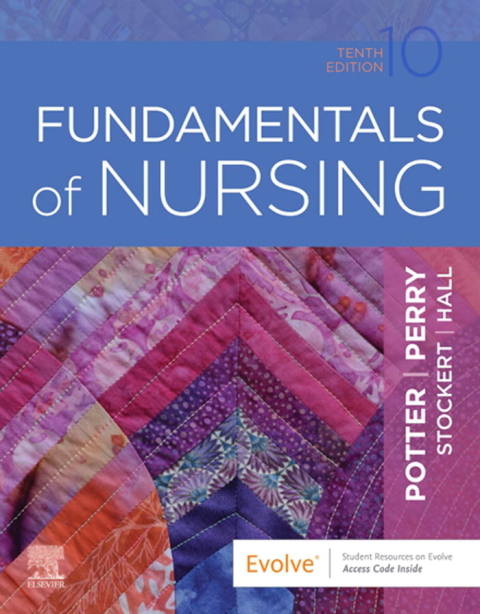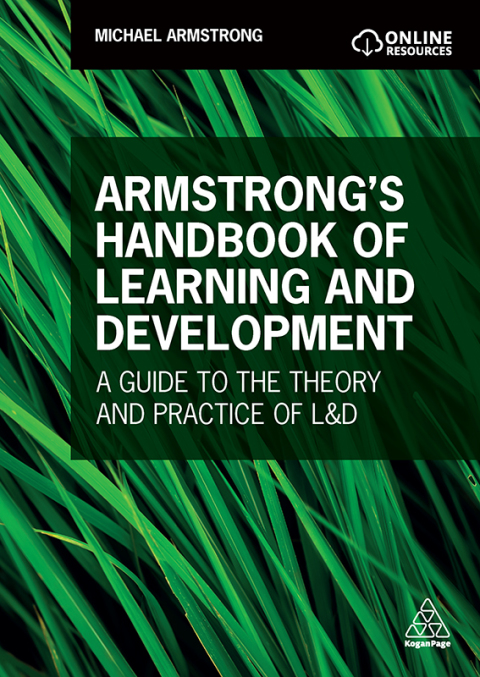Description
Efnisyfirlit
- Instructions for online access
- Cover image
- Title page
- Table of Contents
- Copyright
- Contributors
- Reviewers
- Dedication
- Preface to the Instructor
- Acknowledgments
- Unit 1. Nursing and the Health Care Environment
- 1. Nursing Today
- Nursing as a Profession
- Historical Influences
- Contemporary Influences
- Trends in Nursing
- Professional Registered Nurse Education
- Nursing Practice
- Professional Nursing Organizations
- 2. The Health Care Delivery System
- Traditional Level of Health Care
- Integrated Health Care Delivery
- Issues in Health Care Delivery for Nurses
- The Future of Health Care
- 3. Community-Based Nursing Practice
- Community-Based Health Care
- Community-oriented nursing
- Community-based nursing
- Community Assessment
- Changing patients’ health
- 4. Theoretical Foundations of Nursing Practice
- Theory
- Shared Theories
- Select Nursing Theories
- Link between Theory and Knowledge Development in Nursing
- 5. Evidence-Based Practice
- The Need for Evidence-Based Practice
- Nursing Research
- Research Process
- Performance Improvement
- The Relationship Between EBP, Research, and Performance Improvement
- Unit 2. Caring Throughout the Life Span
- 6. Health and Wellness
- Healthy People
- Definition of Health
- Models of Health and Illness
- Variables Influencing Health and Health Beliefs and Practices
- Health Promotion, Wellness, and Illness Prevention
- Risk Factors
- Risk-Factor Identification and Changing Health Behaviors
- Illness
- Caring for Yourself
- 7. Caring in Nursing Practice
- Theoretical Views on Caring
- Patients’ Perceptions of Caring
- Ethic of Care
- Caring in Nursing Practice
- The Challenge of Caring
- 8. Caring for Patients With Chronic Illness
- The Prevalence and Costs of Chronic Disease
- Multifactorial Nature of Chronic Disease
- Physical Effects of Chronic Illness
- Psychosocial Needs of Patients with Chronic Illness
- Growth AND Development Considerations
- Family Caregivers
- The Chronic Care Model
- Implications for Nursing
- Health Promotion and Disease Prevention
- Public Policy
- 9. Cultural Competence
- World View
- Health Disparities
- Racial, Ethnic, and Cultural Identity
- Disease and Illness
- A Model of Cultural Competence
- Cultural Awareness and Knowledge
- Cultural Skill
- Cultural Encounter
- Cultural Desire
- 10. Family Dynamics
- The Family
- Family Forms and Current Trends
- Family Nursing
- Family-Centered Care and the Nursing Process
- 11. Developmental Theories
- Developmental Theories
- 12. Conception Through Adolescence
- Stages of Growth and Development
- Selecting a Developmental Framework for Nursing
- Intrauterine Life
- Transition from Intrauterine to Extrauterine Life
- Newborn
- Infant
- Toddler
- Preschoolers
- School-Age Children and Adolescents
- School-Age Children
- Adolescents
- 13. Young and Middle Adults
- Young Adults
- Middle Adults
- 14. Older Adults
- Variability Among Older Adults
- Myths and Stereotypes
- Nurses’ Attitudes Toward Older Adults
- Developmental Tasks for Older Adults
- Community-Based and Institutional Health Care Services
- Assessing the Needs of Older Adults
- Addressing the Health Concerns of Older Adults
- Older Adults and the Acute Care Setting
- Older Adults and Restorative Care
- Unit 3. Critical Thinking in Nursing Practice
- 15. Critical Thinking in Nursing Practice
- Clinical Judgment in Nursing Practice
- Critical Thinking Defined
- Levels of Critical Thinking in Nursing
- Critical Thinking Competencies
- Nursing Process Competency
- A Critical Thinking Model for Clinical Decision Making
- Developing Critical Thinking Skills
- Managing Stress
- Critical Thinking Synthesis
- 16. Nursing Assessment
- Critical Thinking in Assessment
- The Nurse-Patient Relationship in Assessment
- The Patient-Centered Interview
- Nursing Health History
- The Assessment Process
- 17. Nursing Diagnosis
- Types of Diagnoses
- Terminologies for Nursing Diagnoses
- Critical Thinking and the Nursing Diagnostic Process
- Use of Nursing Diagnosis in Practice
- Sources of Diagnostic Error
- Documentation and Informatics
- Nursing Diagnoses Application to Care Planning
- 18. Planning Nursing Care
- Establishing Priorities
- Critical Thinking in Setting Goals and Expected Outcomes
- Critical Thinking in Planning Nursing Care
- Systems for Planning Nursing Care
- Consulting with Health Care Professionals
- 19. Implementing Nursing Care
- Standard Nursing Interventions
- Critical Thinking in Implementation
- Implementation Process
- Direct Care
- Indirect Care
- Achieving Patient Goals
- 20. Evaluation
- Standards for Evaluation
- Critical Thinking in Evaluation
- Collaborate and Evaluate Effectiveness of Interventions
- Document Outcomes
- Evaluation of Health Care
- 21. Managing Patient Care
- Building a Nursing Team
- Leadership Skills for Nursing Students
- Unit 4. Professional Standards in Nursing Practice
- 22. Ethics and Values
- Basic Terms in Health Ethics
- Professional Nursing Code of Ethics
- Values
- Approaches to Ethics
- Nursing Point of View
- Issues in Health Care Ethics
- 23. Legal Implications in Nursing Practice
- Legal Limits of Nursing
- Federal Statutes Impacting Nursing Practice
- State Statutes Impacting Nursing Practice
- Legal Implications and Issues Associated with Nursing Practice
- 24. Communication
- Communication and Nursing Practice
- Elements of the Communication Process
- Forms of Communication
- Professional Nursing Relationships
- Elements of Professional Communication
- Nursing Process
- 25. Patient Education
- Standards for Patient Education
- Purposes of Patient Education
- Teaching and Learning
- Domains of Learning
- Basic Learning Principles
- Nursing Process
- 26. Informatics and Documentation
- Purposes of the Health Care Record
- Interprofessional Communication Within the Health Record
- Standards and Guidelines for Quality Nursing Documentation
- Methods of Documentation
- Common Record-Keeping Forms Within The Electronic Health Record
- Documenting Communication With Providers and Unique Events
- Acuity Rating Systems
- Documentation in the Long-Term Health Care Setting
- Documentation in the Home Health Care Setting
- Case Management and use of Critical Pathways
- Informatics and Information Management in Health Care
- Unit 5. Foundations for Nursing Practice
- 27. Patient Safety and Quality
- Scientific Knowledge Base
- Nursing Knowledge Base
- Critical Thinking
- Nursing Process
- 28. Infection Prevention and Control
- Scientific Knowledge Base
- Nursing Knowledge Base
- Nursing Process
- 29. Vital Signs
- Guidelines for Measuring Vital Signs
- Body Temperature
- Nursing Process
- Pulse
- Nursing Process
- Respiration
- Nursing Process
- Blood Pressure
- Nursing Process
- 30. Health Assessment and Physical Examination
- Purposes of the Physical Examination
- Preparation for Examination
- Organization of the Examination
- Techniques of Physical Assessment
- General Survey
- Skin, Hair, and Nails
- Head and Neck
- Thorax and Lungs
- Heart
- Vascular System
- Breasts
- Abdomen
- Female Genitalia and Reproductive Tract
- Male Genitalia
- Rectum and Anus
- Musculoskeletal System
- Neurological System
- After the Examination
- 31. Medication Administration
- Scientific Knowledge Base
- Nursing Knowledge Base
- Critical Thinking
- Nursing Process
- Medication Administration
- 32. Complementary Therapies and Integrative Health
- Complementary and Integrative Approaches to Health
- Nursing-Accessible Therapies
- Training-Specific Therapies
- The Integrative Nursing Role
- Unit 6. Psychosocial Basis for Nursing Practice
- 33. Self-Concept
- Scientific Knowledge Base
- Nursing Knowledge Base
- Critical Thinking
- Nursing Process
- 34. Sexuality
- Scientific Knowledge Base
- Nursing Knowledge Base
- Critical Thinking
- Nursing Process
- 35. Spiritual Health
- Scientific Knowledge Base
- Nursing Knowledge Base
- Critical Thinking
- Nursing Process
- 36. Loss and Grief
- Scientific Knowledge Base
- Nursing Knowledge Base
- Critical Thinking
- Nursing Process
- 37. Stress and Coping
- Scientific Knowledge Base
- Nursing Knowledge Base
- Critical Thinking
- Nursing Process
- Unit 7. Physiological Basis for Nursing Practice
- 38. Activity and Exercise
- Scientific Knowledge Base
- Nursing Knowledge Base
- Critical Thinking
- Nursing Process
- 39. Immobility
- Scientific Knowledge Base
- Nursing Knowledge Base
- Nursing Process
- 40. Hygiene
- Scientific Knowledge Base
- Nursing Knowledge Base
- Critical Thinking
- Nursing Process
- 41. Oxygenation
- Scientific Knowledge Base
- Nursing Knowledge Base
- Critical Thinking
- Nursing Process
- 42. Fluid, Electrolyte, and Acid-Base Balance
- Scientific Knowledge Base
- Nursing Knowledge Base
- Critical Thinking
- Nursing Process
- 43. Sleep
- Scientific Knowledge Base
- Nursing Knowledge Base
- Critical Thinking
- Nursing Process
- 44. Pain Management
- Scientific Knowledge Base
- Nursing Knowledge Base
- Critical Thinking
- Nursing Process
- 45. Nutrition
- Scientific Knowledge Base
- Nursing Knowledge Base
- Critical Thinking
- Nursing Process
- 46. Urinary Elimination
- Scientific Knowledge Base
- Nursing Knowledge Base
- Critical Thinking
- Nursing Process
- 47. Bowel Elimination
- Scientific Knowledge Base
- Nursing Knowledge Base
- Critical Thinking
- Nursing Process
- 48. Skin Integrity and Wound Care
- Scientific Knowledge Base
- Nursing Knowledge Base
- Critical Thinking
- Nursing Process
- 49. Sensory Alterations
- Scientific Knowledge Base
- Nursing Knowledge Base
- Critical Thinking
- Nursing Process
- 50. Perioperative Nursing Care
- Scientific Knowledge Base
- Nursing Knowledge Base
- Critical Thinking
- Preoperative Surgical Phase
- Transport to the Operating Room
- Preanesthesia Care Unit
- Intraoperative Surgical Phase
- Nursing Roles During Surgery
- Nursing Process
- Postoperative Surgical Phase
- Immediate Postoperative Recovery (Phase I)
- Recovery in Ambulatory Surgery (Phase II)
- Recovery of Inpatients: Postoperative Recovery and Convalescence
- Nursing Process
- Glossary
- Index
- Special Features








Reviews
There are no reviews yet.